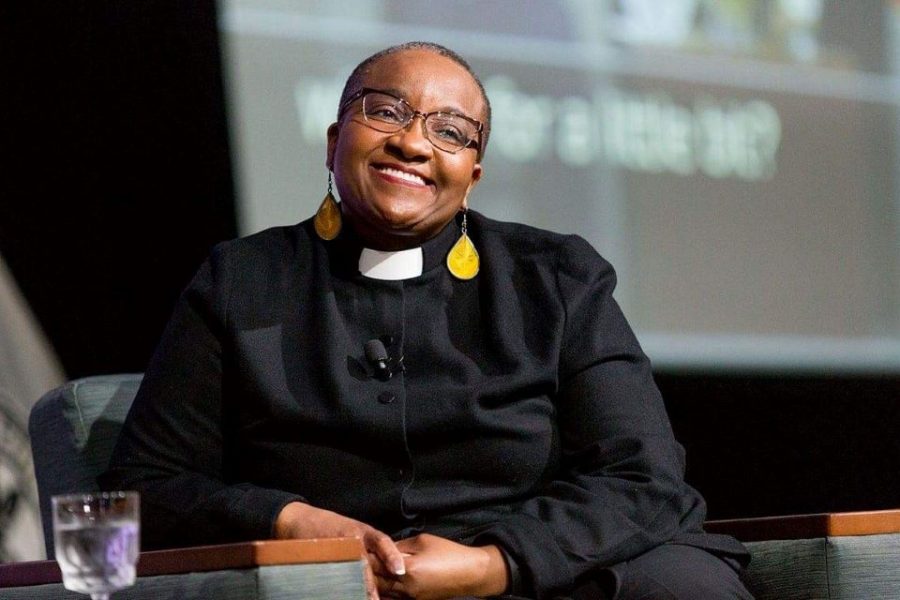Rev. Nontombi Naomi Tutu Gives 21st Atlas Keynote Address
On Friday, April 16, the Rev. Nontombi Naomi Tutu capped off Atlas Week with her keynote address at the Twenty-First Annual Atlas Week Signature Symposium. Throughout the week of April 12-16, the Atlas week coordinators brought together panelists virtually to discuss problems related to racial justice, with the guiding theme of “The House that Racism Built.”
Tutu was born in 1960 in Krugersdorp, South Africa, the third daughter of Archbishop Desmond Tutu and Nomalizo Tutu. She was educated in Swaziland and the United Kingdom, and later continued her education in the United States, graduating from Berea College in Kentucky and the University of Kentucky. After obtaining a master’s degree from the University of Kentucky, Tutu began work as a consultant, activist and public speaker. Among other roles and accolades, Tutu was a delegate at the United Nations World Conference Against Racism in Durban, South Africa and has received four honorary doctorates from universities in the U.S. and Africa. She is an ordained Episcopal minister and has served as Missioner for Racial and Economic Equity at the Cathedral of All Souls, in Asheville, NC.
Tutu opened her keynote remarks on Friday with an extended reflection on Toni Morisson’s acclaimed essay “Home,” part of a wider collection of essays about racism in America from which the Atlas week “The House that Racism Built” took its name. She mediated in particular on a line from Morisson’s essay about the desire to live in a place where “where race both matters and is rendered impotent.” Reflecting on this line, Tutu offered a vision of a more just future where there is a simultaneous embrace of the common humanity of all and a celebration of the diversity that makes up our world.
Tutu also discussed her experiences growing up in apartheid South Africa, especially as the daughter of the apartheid regime’s staunchest opponents, Archbishop Desmond Tutu, who won the Nobel Peace Prize for his anti-apartheid activism. Her mother, who in addition to raising four children, was also actively engaged as a labor organizer and activist, was another formative influence. She spoke about the racism and sexism she faced as a young girl both in South Africa and later in England, which inspired and continues to inspire her education activism, particularly for young girls. In fact, her name means “mother of girls,” and in a separate interview, Tutu said: “I thought that that meant that I would only give birth to girls, but when my son was born, I realized that it meant that I’d work with the young women of the world.”
In her experience leading Truth and Reconciliation workshops with groups in conflict, she has drawn heavily from her experiences living in apartheid South Africa and the South African Truth and Reconciliation process that took place during the late 1990s. She told The University News: “there has never been an issue that has gone away simply by ignoring it. You can’t pick and choose the history you are going to pay attention to,” adding, “The biggest lesson for me from the Truth and Reconciliation process is that you have to have an honest look at your story. What did you do? What didn’t you do? If we want to start a process of healing and reconciliation, we have to set up places where the story of how we got to where we are can be told.”
Tutu also offered advice to young SLU students: “Whoever you are, there is something you can do…it’s not always something dramatic. Once you recognize that you have some power to affect what happens in the world, you can start looking at the opportunity to do so, even if those opportunities are simply about your friend circle, your family circle, your church community, and your university community.”
Your donation will support the student journalists of Saint Louis University.





